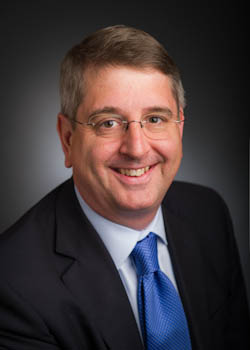The 36th annual San Antonio Breast Cancer Symposium, which ran from Dec. 10-14, brought news of significant advances against a disease that strikes more than 230,000 women and 2,000 men in the United States each year.
The more than 1,000 research papers presented by thousands of scientists and physicians ranged from laboratory explorations of the basic biology of the disease to studies that may change the treatment for patients with a variety of breast cancer subtypes.
Here are summaries of the findings of several high-profile studies:
- Mammography screening: When researchers re-analyzed data from four large studies of the pros and cons of mammography screening, they found the benefits were more consistent than previously understood and that all the studies indicated a substantial reduction in breast cancer deaths with screening. The study, led by researchers at the American Cancer Society, is expected to influence the ongoing public and academic debate about the benefit of mammography screening.
- HER2-positive breast cancer: Women with small (stage 1), HER2-positive breast tumors who received a combination of lower-intensity chemotherapy and a targeted therapy following surgery were highly unlikely to have the cancer recur within the first three to four years following treatment. The findings, presented by researchers at the Susan F. Smith Center for Women’s Cancers at Dana-Farber Cancer Institute, offer a new strategy for preventing recurrence in this group of patients.
- Hormone therapy: Women age 65 or older who receive hormone therapy after breast-conserving surgery for breast cancer that is fueled by hormone but hasn’t spread to the lymph nodes can reasonably opt not to have radiation therapy. Although radiotherapy can substantially reduce breast cancer recurrence, the study showed that the proportion of women who have a recurrence without radiotherapy is very small five years after treatment, investigators found.
- Exercise and Aromatase Inhibitors: A study led by investigators at Yale University and the Susan F. Smith Center for Women’s Cancers at Dana-Farber Cancer Institute found that women treated with breast cancer drugs known as aromatase inhibitors can markedly ease the join pain associated with the drugs by engaging in moderate daily exercise.
- Herceptin: Women with HER2-positive breast cancer who had the

Harold Burstein, MD, PhD highest levels of immune cells in their tumors had the most benefit from treatment with chemotherapy and the drug Herceptin prior to surgery.
- Chemo-resistant breast cancer: Treatment with the drug bisphosphonate zoledronate did not improve outcomes for women with breast cancer that was resistant to chemotherapy, according to early results of a phase III clinical trial.
“The San Antonio Breast Cancer Symposium is the world’s largest gathering of breast cancer specialists each year and the findings at this year’s meeting were very exciting,” says Harold Burstein, MD, PhD, a breast oncologist with the Susan F. Smith Center for Women’s Cancers at Dana-Farber Cancer Institute. “The findings show that for some patients we can do less and still get outstanding results, and for some patients we need to do more to get very good outcomes. That kind of individual approach to patient care is a priority in breast cancer and at Dana-Farber. On a personal note, it was immensely gratifying to see studies led by our Dana-Farber colleagues generate important data and attention.”
